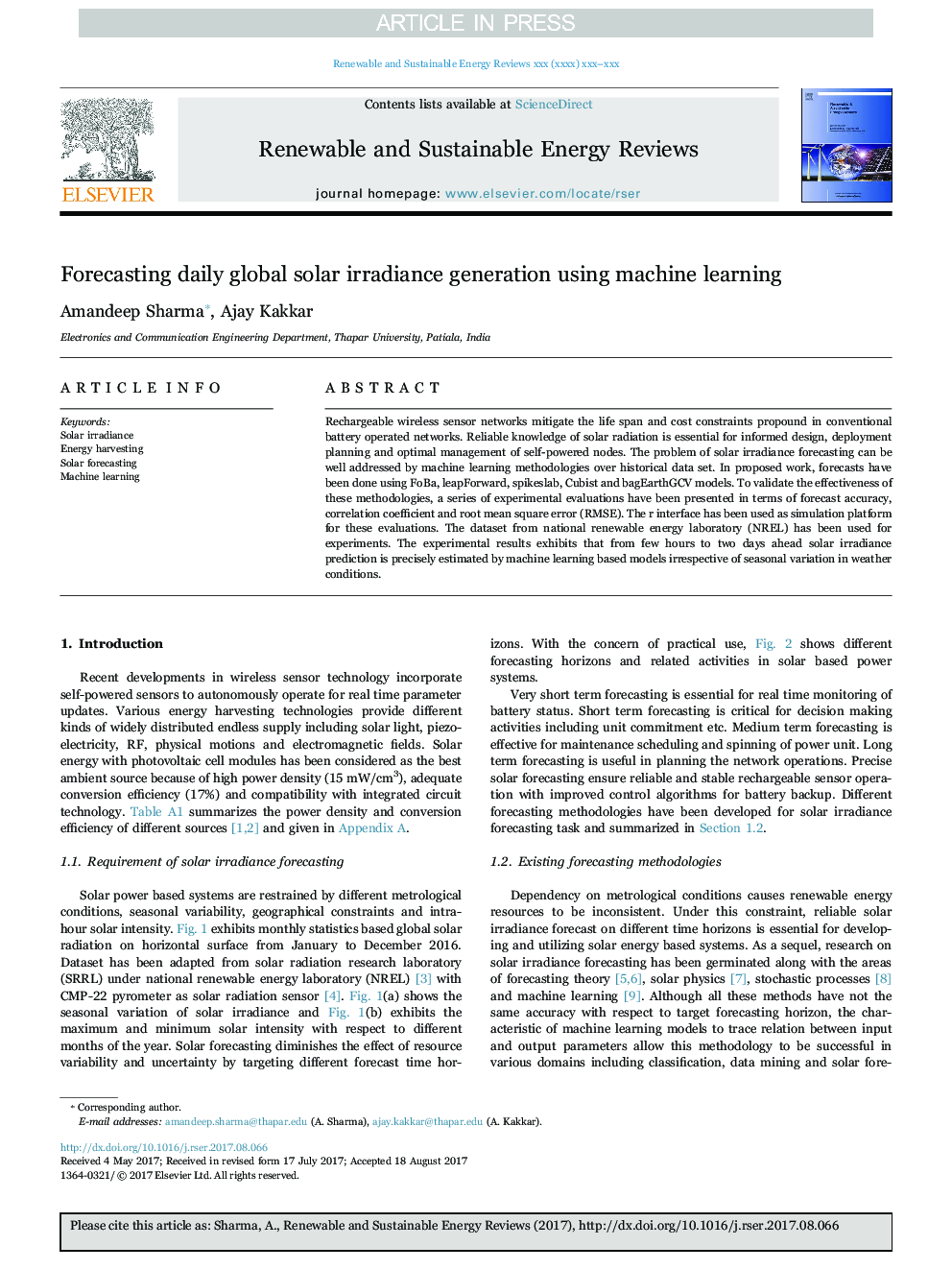| Article ID | Journal | Published Year | Pages | File Type |
|---|---|---|---|---|
| 8111770 | Renewable and Sustainable Energy Reviews | 2018 | 16 Pages |
Abstract
Rechargeable wireless sensor networks mitigate the life span and cost constraints propound in conventional battery operated networks. Reliable knowledge of solar radiation is essential for informed design, deployment planning and optimal management of self-powered nodes. The problem of solar irradiance forecasting can be well addressed by machine learning methodologies over historical data set. In proposed work, forecasts have been done using FoBa, leapForward, spikeslab, Cubist and bagEarthGCV models. To validate the effectiveness of these methodologies, a series of experimental evaluations have been presented in terms of forecast accuracy, correlation coefficient and root mean square error (RMSE). The r interface has been used as simulation platform for these evaluations. The dataset from national renewable energy laboratory (NREL) has been used for experiments. The experimental results exhibits that from few hours to two days ahead solar irradiance prediction is precisely estimated by machine learning based models irrespective of seasonal variation in weather conditions.
Related Topics
Physical Sciences and Engineering
Energy
Renewable Energy, Sustainability and the Environment
Authors
Amandeep Sharma, Ajay Kakkar,
